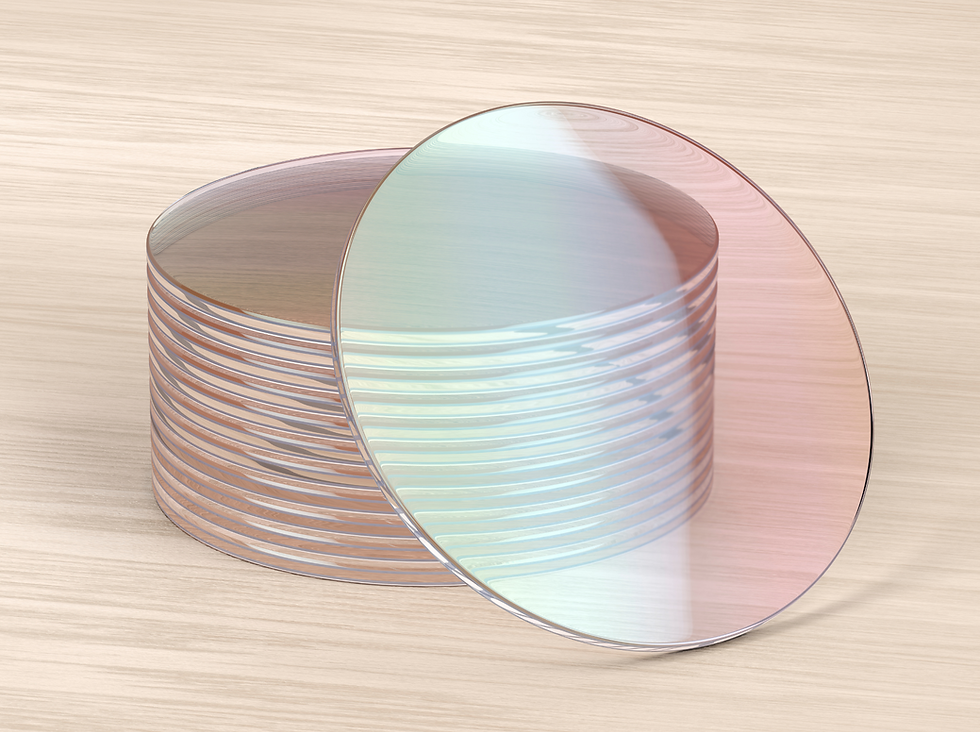Your Baby Keeps Rubbing Eyes? Here's What to Know.
- Atanas Bogoev M.D. and Maria Bogoeva

- Nov 9, 2023
- 3 min read
Is your baby constantly rubbing eyes? Here's what to know about this behavior, and when eye rubbing in babies is a warning sign. The early stages of a newborn's life are filled with curiosity and new experiences. A habit parents often observe in their little ones is when their baby keeps rubbing their eyes. While occasional eye rubbing in infants is usually harmless, frequent rubbing may suggest eye problems.
This publication aims to shed light on why babies rub their eyes. From natural habits to potential medical conditions. By grasping the rationale behind the behavior, parents can ensure the comfort and eye health of their infants.
Why Do Babies Rub Their Eyes?
Babies tend to rub their eyes because they are tired or sleepy, or out of curiosity and exploration. In some cases, you may notice your baby rubbing eyes a lot as a reaction to allergens or foreign body sensations in their eyes. These reactions are natural, which makes them common and often harmless.
Yet, sometimes a baby constantly rubbing eyes may indicate health issues. Be on the lookout for persistent or excessive eye rubbing, along with redness, swelling, or eye discharge. These manifestations are often warning signs of eye infections or potential eye conditions.
Parents and caregivers need to be attentive to the context and accompanying signs when their baby keeps rubbing eyes.
RELATED: Protecting Your Newborn's Eyes

Normal Habits of Eye Rubbing in Babies
Tiredness and Sleepiness
Babies, like adults, can become tired and sleepy. Rubbing the eyes is a common sign of fatigue. Infants may use this self-soothing motion to signal their need for rest. This behavior is normal and not a cause of concern. You can manage it by providing a comfortable sleep environment.
Exploration and Discovery
Infants often explore the world around them by touching and feeling objects. Including their bodies. A baby rubbing eyes may be an act of curiosity, as babies become aware of their facial features. Such behavior is a part of normal baby development.
Potential Medical Reasons If Baby Keeps Rubbing Eyes
Allergies
Allergies can affect infants like they can affect older individuals. Allergens like dust, pollen, pet dander, or certain foods may trigger immune reactions. A baby rubbing eyes, along with sneezing or watery eyes, may show such allergy conditions. Identifying and minimizing exposure to allergens helps manage eye rubbing.
Foreign Body Sensation
Sometimes, babies may have a foreign object, such as an eyelash or dust particle, trapped in their eyes. The sensation can cause intensive eye rubbing as the baby attempts to alleviate the discomfort. Careful inspection and, if necessary, gentle eye flushing with lukewarm water may remove the foreign object.
Eye Strain
While it is less common in babies, continuous exposure to screens, bright lights, or visual stimulation can lead to eye strain. It often manifests with your baby constantly rubbing eyes. Reducing/eliminating screen time and setting appropriate lighting ease eye strain.
Eye Infections
Eye infections in infants may present with redness, itching, and eye discharge. Babies may rub their eyes in response to the discomfort. The most common conditions in babies are conjunctivitis or viral eye infections. Less common but serious is keratoconus. Seeking prompt medical attention guarantees accurate diagnosis and appropriate treatment.
Eye Conditions
In rare cases, if your baby rubs eyes a lot, this may be indicative of underlying conditions or vision problems. Conditions like blocked tear ducts, strabismus (crossed eyes), or refractive errors can lead to eye discomfort. Early examination by a pediatric eye doctor is key for addressing such issues.

When to Seek Medical Advice?
Consider medical advice if you notice the following signs in your baby's eye-rubbing behavior:
Excessive or persistent eye rubbing
More symptoms (redness, swelling, excessive tearing, discharge, or visual changes)
Family history of eye conditions
If the baby keeps rubbing eyes for long periods or if the rubbing is frequent or continuous, consult a healthcare professional.
When a baby rubs eyes a lot and also exhibits other eye symptoms, this should raise a flag. Look for ocular signs like redness, swelling, excessive tearing, discharge, or changes in the eye appearance.
Babies with a history of eye conditions in the family may be at a higher risk. Regular vision screenings with a pediatric eye doctor can identify and address any potential issues early.
Learn more about your and your baby's eye health in the Ophthalmology24 blog.
Checked by Atanas Bogoev, MD.



